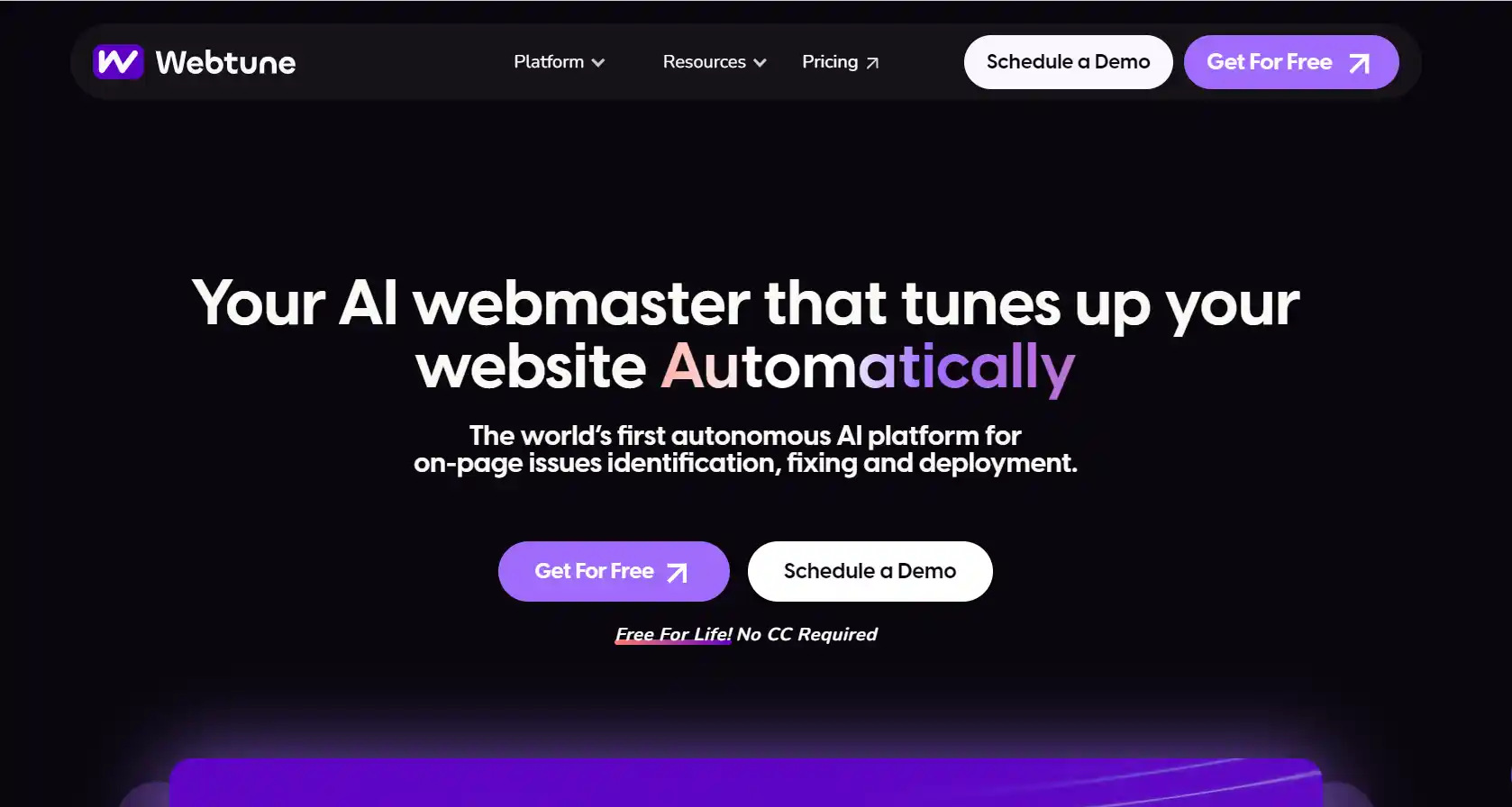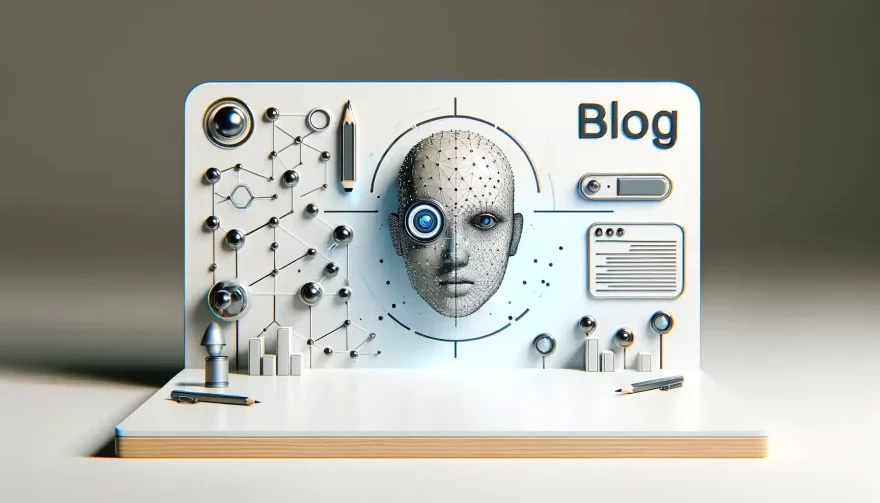Autonomous AI agents are cutting-edge tools designed to operate independently, leveraging AI to perform a variety of tasks without continuous human supervision.
These agents can break down a primary task into subtasks, execute them, and even create follow-up tasks, showcasing remarkable capabilities in automation, creativity, and decision-making.
Best AI autonomous AI agents
Here’s an overview of some noteworthy autonomous AI agents and tools, which illustrate the diverse applications and the evolving landscape of autonomous AI technology:
1) Webtune

Webtune, presented as the world’s first autonomous AI platform for on-page issue identification, fixing, and deployment, automates website management tasks.
It is designed to save significant time and resources on website maintenance, working with any CMS, and offering real-time monitoring and unlimited optimization.
WebTune’s capabilities include:
- Detecting on-page issues
- Providing AI-powered resolutions, and
- Enabling auto-deployment at scale, all without the need for coding or developers.
This tool is built by the team behind Scalenut, a leading AI-SEO platform.
2) MultiOn

MultiOn is an AI technology designed to streamline digital experiences by handling tasks in the background of any digital platform, such as websites and apps.
This approach aims to reduce the need for user intervention in mundane or complex tasks, allowing users to focus more on fulfilling activities. MultiOn is developed for integration by developers and businesses into their applications to create more efficient user experiences.
It’s slated to be available on iOS in early 2024, emphasizing technology and design’s role in enhancing human capabilities through AI.
- Visit and perform actions on websites
- Run different actions simultaneously
- Open desktop apps on your computer
3) AutoGPT
AutoGPT is an open-source autonomous AI agent designed to interface with GPT-4 and GPT-3.5, capable of breaking down tasks into subtasks and autonomously completing them.
It supports a variety of applications, including content creation, social media management, and text translation. It requires the installation of AutoGPT, Docker, and an OpenAI account with API keys for operation
4) BabyAGI
BabyAGI is a Python script by Yohei Nakajima that uses OpenAI’s GPT-4, Pinecone vector search, and the LangChain framework to automatically create, execute, and prioritize subtasks in real time.
It involves a multi-agent framework where different agents are responsible for task execution, task creation, and prioritization, showcasing a complex but efficient way to handle tasks.
5) AgentGPT
AgentGPT, created by Asim Shresta, Srijan Subedi, and Adam Watkins, is a web-based platform that allows users to build and deploy autonomous AI agents. It connects to GPT-4 and GPT-3.5 Turbo, providing a user-friendly interface for managing tasks and learning from their execution history.
6) SuperAGI
SuperAGI is an open-source AGI infrastructure platform designed for developers to build, manage, and run autonomous agents. It features an action console, resource manager, trajectory fine-tuning, and performance monitoring.
SuperAGI supports multiple vector databases, multi-LLM support, agent & tool memory, and sophisticated agent workflows. The marketplace offers agent templates, tools, knowledge embeddings, and models for enhanced agent capabilities.
7) Reworkd AI
Reworkd AI specializes in web data extraction at scale, offering AI-driven solutions to generate and repair web scrapers automatically.
This technology enables structured data collection from thousands of websites without the need for developers, catering to sectors like manufacturing, e-commerce, recruiting, lead generation, real estate, and media.
Reworkd AI simplifies processes such as collecting product data, competitor pricing, job postings, prospect lists, property listings, and news articles.
8) MicroGPT
Developed by Sin Liang Lee, MicroGPT is a lightweight language model that uses GPT-3.5 and GPT-4 for basic tasks like stock analysis, security testing, digital artwork creation, and more.
Its compact architecture makes it suitable for less complex tasks, requiring Python, Git, and a code editor for installation.
*************
These autonomous AI agents are part of a growing ecosystem that demonstrates AI’s potential to revolutionize how we approach tasks across various domains.
From healthcare and education to customer service and content creation, these tools are setting the stage for a future where AI’s role is increasingly autonomous, offering novel solutions to both old and new challenges.
As this technology continues to evolve, it’s expected that we’ll see even more innovative applications and improved capabilities, making autonomous AI agents an exciting area for further exploration and development.


